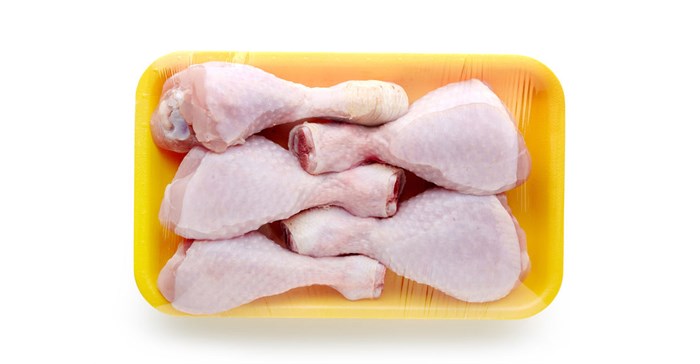SA's crisis-stricken poultry industry - and whether the crisis has been caused by "dumping" of EU bone-in chicken portions - was the subject of heated debate in parliament on Thursday.
For the South African Poultry Association (Sapa), the problem was a clear case of dumping, which was resulting in industry shrinkage. However, for the Association of Meat Importers and Exporters (Amie) it was a case of a lack of industry competitiveness and a poor business model, which did not place sufficient emphasis on exports.
The two associations made presentations to parliament's trade and industry committee during an all-day hearing on the crisis.
A provisional safeguard duty of 13.9% was imposed late in 2016 on bone-in chicken portions from the EU and the International Trade Administration Commission is currently investigating whether this should be increased. The commission expects to submit its recommendation to Trade and Industry Minister Rob Davies at the end of May.
The government accepted that the industry was in crisis and that further policy interventions were needed. An interdepartmental task team was established in November to address the issue.
Debate on poultry crisis
Amie's adviser, Donald Mackay, insisted that the industry's problem was not one of dumping but the lack of competitiveness. SA should bring a case of antidumping with the World Trade Organisation if dumping were, in fact, taking place.
However, Sapa CEO Kevin Lovell said urgent action was required and proposed that measures be put in place to reduce imports by at least half. This would still make imports the third-largest source of chicken products on the local market.
He noted that of all the chicken consumed in SA, 26% was imported with 45% (240,000 tonnes) being bone-in chicken portions. Of this, EU imports represented 81%. "We are the EU's biggest export destination [representing] more than 19% of their [chicken] exports," Lovell said. He estimated that for every 10,000 tonnes of poultry meat imported, 1,069 direct and indirect jobs would be lost. Already more than 2,000 direct jobs had been, or would be, lost in the near future.
Department of Trade and Industry deputy director-general Garth Strachan pointed to the high cost of inputs for the industry, namely maize and soya, which are used as chicken feed and represent 65%-70% of total costs. This problem had been exacerbated by the drought, which resulted in a rise in prices. High electricity costs also had to be taken into account.
Strachan noted that SA could produce whole chickens cheaper than most EU countries and the US.
"Trade measures are required to protect the industry from unfair competition but it is important that these do not lead to high consumer price increases," Strachan said.
Source: BDpro


































